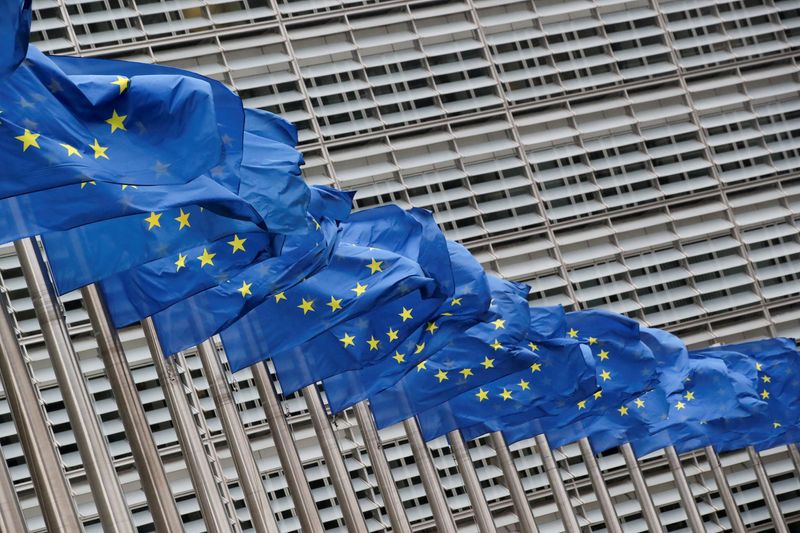
By Kate Abnett
BRUSSELS (Reuters) – Environmental campaigners have taken the European Commission to court over its emissions rules for 2030, seeking a ruling from Europe’s second-highest court that would force the bloc to strengthen its climate policy, they said on Tuesday.
In a case before the Court of Justice of the European Union’s General Court, non-profit groups Climate Action Network and the Global Legal Action Network (GLAN) argue that national limits on greenhouse gas emissions for sectors such as transport and agriculture are unlawful.
The campaigners said the thresholds would fail to cut Europe’s planet-heating emissions fast enough to meet the Paris Agreement’s goal to limit global warming to 1.5 degrees Celsius (about 2.7 degrees Fahrenheit) above pre-industrial levels.
“We have outlined how the EU’s 2030 targets were not derived from best available climate science,” said Gerry Liston, a lawyer with GLAN.
A European Commission spokesperson declined to comment on ongoing legal proceedings.
In a written defence submitted to the court in July, seen by Reuters, the Commission asked the court to dismiss the claims as inadmissible.
The national emissions limits, which require EU member states to cut their emissions in those sectors between 10% and 50% from 2005 levels, are designed to contribute to the EU’s overall goal of reducing net emissions 55% by 2030, in relation to 1990 levels.
Scientists say the world’s emissions need to roughly halve by 2030 to have a shot at limiting warming to 1.5C. Campaigners argue wealthy, large historical polluters like the EU should be moving faster than that.
Sectors covered by the national limits have weaker goals than segments such as power generation and industry, which EU policies require to cut emissions by more than 60% by 2030, from 2005 levels.

The court has given the case priority status, according to a letter from the court to the plaintiffs’ lawyers, seen by Reuters. That could mean the case is heard in 2025. The case was initially brought in February, but not made public at the time.
The court did not immediately respond to a request for comment on why it has granted this case priority over others.
This post is originally published on INVESTING.


